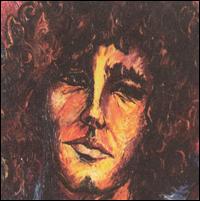
Timothy Charles Buckley III was an American musician. He began his career based in folk rock, but subsequently experimented with genres such as psychedelia, jazz, the avant-garde, and funk paired with his unique five-octave vocal range. His commercial peak came with the 1969 album Happy Sad, reaching No. 81 on the charts, while his experimental 1970 album Starsailor went on to become a cult favorite. The latter contained his best known song, "Song to the Siren." Buckley died at the age of 28 from a heroin and morphine overdose, leaving behind sons Taylor and Jeff.

Blue Afternoon is the fourth studio album by Tim Buckley, released in November 1969. It is Tim Buckley's first self-produced record and his debut for Herb Cohen and Frank Zappa's label Straight Records. The album used the same group of musicians as Happy Sad (1969) with the addition of drummer Jimmy Madison. It presaged Buckley's most experimental work on his subsequent two albums.
Shelleyan Orphan were a British alternative music group that peaked during the 1980s and early 1990s. They played a style of pop influenced by chamber music, and which featured dual male-female vocals.

Goodbye and Hello is the second album by Tim Buckley, released in August 1967, recorded in Los Angeles, California, in June of the same year.
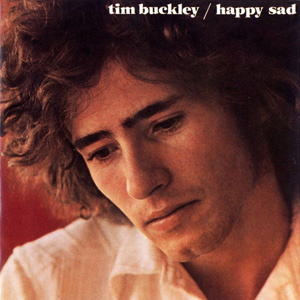
Happy Sad is the third album by American singer-songwriter Tim Buckley, released in April 1969. It was recorded at Elektra Sound Recorders in Los Angeles, California and was produced by former Lovin' Spoonful members Zal Yanovsky and, coincidentally, his subsequent replacement Jerry Yester. It marked the beginning of Buckley's experimental period, as it incorporated elements of jazz that he had never used before. Many of the songs here represent a departure from the binary form that dominated much of his previous work.

Tim Buckley is the debut album by Los Angeles based singer-songwriter Tim Buckley, released in October 1966. Most of the songs on it were co-written by Buckley and Larry Beckett while they were in high school. It was recorded at Sunset Sound in Los Angeles, California.
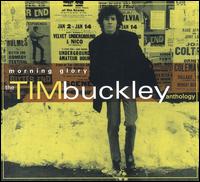
Morning Glory: The Tim Buckley Anthology is a compilation album by Tim Buckley. The two cds give an overview of Tim Buckley's career. The compilation contains material from the many phases of Buckley's career, and includes a previously unreleased version of "Song to the Siren", as performed in 1968 on The Monkees. The photo used for the cover art was taken by Linda Eastman, more commonly known as Linda McCartney.

Dream Letter: Live in London 1968 is a live album by Tim Buckley. The album was recorded in Queen Elizabeth Hall, London, England on October 7, 1968. Due to a lack of available funds Buckley was unable to tour with regular bass player John Miller and conga player Carter "C.C." Collins. The concert instead features bassist Danny Thompson, guitarist Lee Underwood and vibraphone player David Friedman.
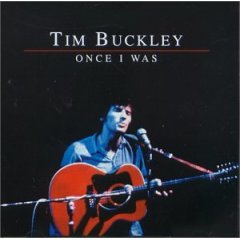
Once I Was is a compilation album by Tim Buckley. The album features the Peel sessions recorded 1 April 1968, two tracks, "Honeyman" and "Dolphins", from a BBC broadcast of The Old Grey Whistle Test on 21 May 21 1974 and finally "I Don't Need It to Rain" taken from the 12 October 1968 live show in Copenhagen. This collection features the same track listing as the Morning Glory compilation, with the sole difference being the inclusion "I Don't Need It to Rain". Buckley and his band are accompanied by famed Danish jazz double bassist Niels-Henning Ørsted Pedersen on this track due to the unavailability of Buckley's regular bassist for the 1968 European tour.

"Nobody Sees" is a song by Powderfinger from their sixth album Dream Days at the Hotel Existence. It is the third single from the album and was released in Australia on 1 December 2007. The announcement that it would be released as a single came at the same time as releasing the music video to the internet on the official Universal Records website.
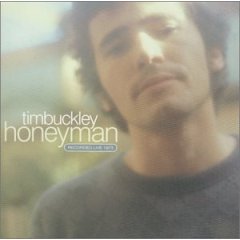
Honeyman: Live 1973 is a live album by rock artist Tim Buckley. The album was recorded as a live radio broadcast for radio station WLIR in New York City, United States on November 27, 1973.

The Dream Belongs to Me: Rare and Unreleased 1968 – 1973 is a compilation album by Tim Buckley. The album consists of three demo sessions, two recorded in 1968 and the other in 1973.

Thin Wires In The Voice is a 120-page booklet written by Italian writer Luca Ferrari with a 3 track EP by Tim Buckley. The EP is a compilation of "Song to the Siren", featuring just Buckley's guitar and voice, recorded for the TV show The Monkees and two live recordings taken from a 1968 Danish radio broadcast. This earlier version of Starsailor track "Song to the Siren" is more folk-oriented and can also be found on Morning Glory: The Tim Buckley Anthology. The two live recordings are also found on Buckley's 1968 live album Copenhagen Tapes. The booklet is dual language appraisal of Tim Buckley in Italian and English. It also contains selected lyrics and poetry.

Copenhagen Tapes is a live album by Tim Buckley. It was recorded in Copenhagen, Denmark on October 12, 1968 and was broadcast later on Danish radio. The live performance features songs from Happy Sad, however "I Don't Need It to Rain" was only recorded in concert and no studio version is believed to exist.

Peel Sessions is a live album by Tim Buckley. It was recorded in studio 1 at 201 Piccadilly London, UK on 1 April 1968, as a session recording for BBC radio DJ John Peel. The session was subsequently broadcast six days later on 7 April 7, 1968. The session consists of folk-oriented songs from Buckley's Goodbye and Hello - Blue Afternoon period recorded in a sparse manner with only Tim's vocals, two guitars and percussion. Peel would later comment on this session as one that "defines essential music".

Morning Glory is a compilation album by Tim Buckley. The album is a compilation of the Buckley's 1968 John Peel session and two further tracks taken from the May 21, 1974 performance for, BBC TV music series, The Old Grey Whistle Test. The performance of "Dolphins" is also available as a video on 2007 DVD release Tim Buckley: My Fleeting House.

The Best of Tim Buckley is a compilation LP by Tim Buckley. It presents Buckley as a folk artist with songs written between 1966 and 1970. The album features material from the studio albums Tim Buckley, Goodbye and Hello, Happy Sad and Blue Afternoon, in addition to "Song to the Siren" from his avant garde album Starsailor. This was the first new release, outside of Australia after Buckley's death. The album provides an overview of Buckley's folk beginnings, excluding material from his later albums.

Dream Brother: The Songs of Tim and Jeff Buckley is a studio album performed by various artists in tribute to 1960s musician Tim Buckley, and his son, also a musician, Jeff Buckley. Both father and son died prematurely, Tim Buckley of an overdose and Jeff Buckley in a drowning accident.

Sing a Song for You: Tribute to Tim Buckley is a double CD studio album performed by various artists in tribute to 1960s musician Tim Buckley. The album is named after a Buckley song of the same name which is also the first track on the first disc. Tim Buckley died of an accidental overdose in 1975.
Lee Underwood is an American musician and journalist who played lead guitar with Tim Buckley for most of Buckley's career.
